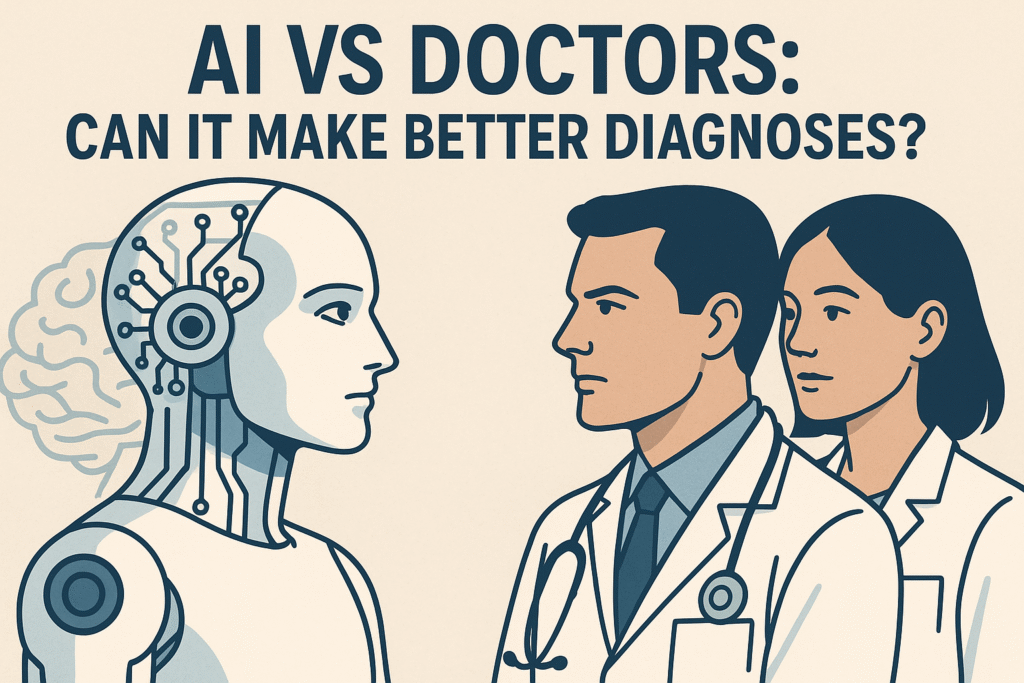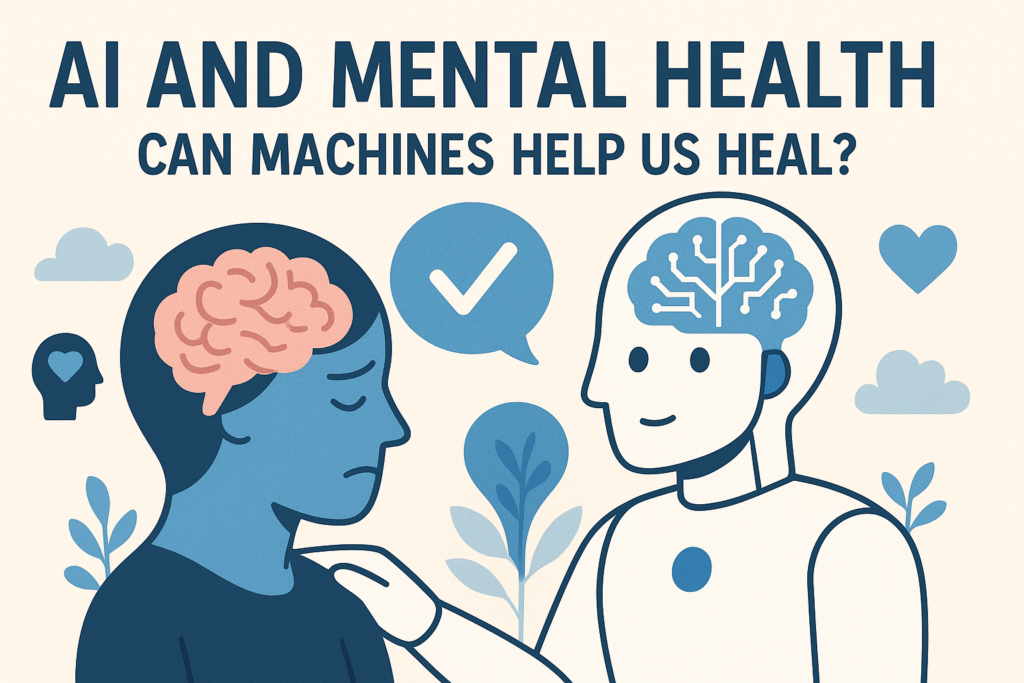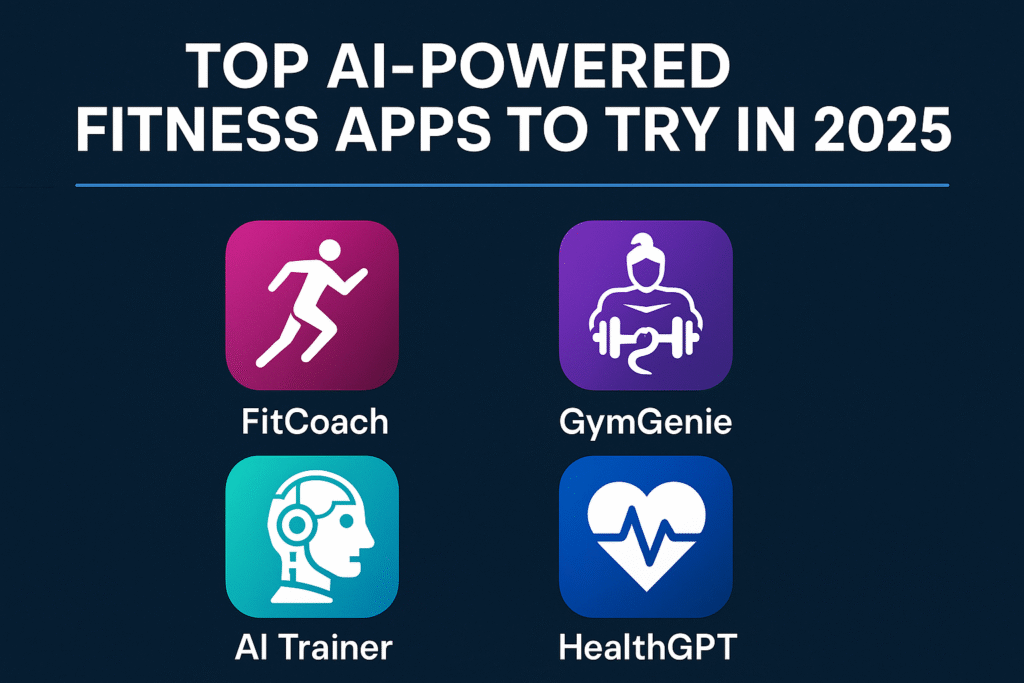⚖️ AI vs Doctors: Can It Make Better Diagnoses Than Humans in 2025?
AI vs Doctors: Can machines really make better diagnoses than humans? Explore real-world comparisons, benefits, and limitations at AiBlogQuest.com.
🤖 Introduction: A Stethoscope or an Algorithm?
With AI evolving rapidly in healthcare, a provocative question arises: “Can AI make better diagnoses than human doctors?” In 2025, this debate isn’t hypothetical—it’s already unfolding in hospitals worldwide.
At AiBlogQuest.com, we compare AI vs doctors in terms of accuracy, speed, empathy, and real-life results.
🧠 How Does AI Diagnose Medical Conditions?
AI uses:
-
Machine learning algorithms
-
Medical imaging analysis
-
Electronic health records (EHRs)
-
Natural language processing
-
Predictive modeling
These systems are trained on millions of data points to detect disease markers often missed by human eyes.
✅ Example: Google Health’s AI model outperformed radiologists in spotting breast cancer from mammograms.
🏥 Where AI Outperforms Human Doctors
1. 🧬 Radiology & Imaging
AI can analyze X-rays, MRIs, and CT scans faster and often more accurately than radiologists.
-
Google DeepMind detects eye diseases and cancer at superhuman accuracy.
-
Lunit AI flags lung nodules and tuberculosis from chest X-rays instantly.
2. 🧠 Early Disease Prediction
AI models like IBM Watson predict the onset of:
-
Alzheimer’s
-
Heart disease
-
Diabetes
years before symptoms show.
3. 🧪 Rare Disease Diagnosis
Platforms like Face2Gene use facial recognition + AI to identify rare genetic disorders faster than specialists.
4. ⏱️ Speed & Scalability
AI systems can process thousands of cases per second, making them invaluable during:
-
Pandemics
-
Mass screenings
-
Rural healthcare deployments
🤝 Where Human Doctors Still Win
🗣️ Empathy & Communication
Doctors can:
-
Comfort scared patients
-
Explain complex treatments
-
Motivate behavioral change
AI still lacks emotional intelligence and bedside manner.
🧩 Complex, Multi-symptom Cases
AI may struggle with:
-
Non-standard symptoms
-
Rare comorbidities
-
Intuition-based diagnoses
Doctors rely on experience and gut instinct in ambiguous situations.
📊 Real-World Results: AI vs Doctors
| Task | AI Accuracy | Human Doctor Accuracy |
|---|---|---|
| Breast Cancer Detection | 94.5% | 88.0% |
| Skin Cancer (Melanoma) | 95.0% | 86.6% |
| Diabetic Retinopathy (Eye) | 90.3% | 82.5% |
| Depression Prediction | 85.0% | Subjective |
Source: JAMA, Nature Medicine, The Lancet
⚖️ The Future: AI + Doctors = Better Together
The true future of diagnosis isn’t AI vs doctors—it’s AI + doctors.
AI acts as a second opinion, helping reduce diagnostic errors and workload, while humans offer context, ethics, and empathy.
🔗 Useful Links
🌐 Resources
❓ FAQ – AI vs Doctors
Q1: Can AI fully replace doctors in diagnosis?
No. AI can assist with high-accuracy detection but lacks human empathy and nuanced judgment for full replacement.
Q2: Is AI more accurate than doctors?
In narrow diagnostic tasks like imaging, yes. In broader clinical judgment, not yet.
Q3: Is AI in diagnosis safe and approved?
Many AI systems are FDA-approved and used in clinics, but must be paired with doctor supervision.
🏁 Final Thoughts
The rise of AI in medicine isn’t about competition—it’s about collaboration. When used ethically and wisely, AI enhances diagnosis speed and accuracy, but the human touch remains irreplaceable.
Stay ahead of healthcare innovation with AiBlogQuest.com, where we decode the future of medicine, one algorithm at a time.
🏷️ Tags:
AI vs Doctors, AI in Healthcare, AI Medical Diagnosis, Doctor vs AI, Medical AI Tools, AiBlogQuest



